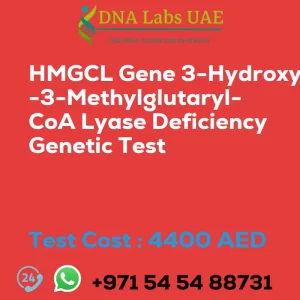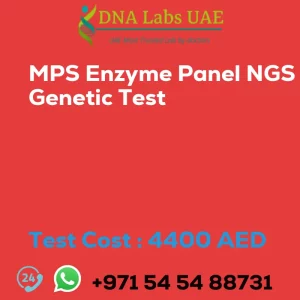ATP8B1 Gene Cholestasis Benign Recurrent Intrahepatic Genetic Test
Test Name: ATP8B1 Gene Cholestasis Benign Recurrent Intrahepatic Genetic Test
Components: ATP8B1 gene cholestasis, NGS technology
Price: 3200.0 AED
Sample Condition: Blood or Extracted DNA or One drop Blood on FTA Card
Report Delivery: 3 to 4 Weeks
Method: NGS Technology
Test Type: Metabolic Disorders
Doctor: General Physician
Test Department: Genetics
Pre Test Information: Clinical History of Patient who is going for ATP8B1 Gene Cholestasis, benign recurrent intrahepatic NGS Genetic DNA Test. A Genetic Counselling session to draw a pedigree chart of family members affected with Cholestasis, benign recurrent intrahepatic.
Test Details:
ATP8B1 gene cholestasis, also known as benign recurrent intrahepatic cholestasis type 1 (BRIC1), is a rare genetic disorder that affects the liver’s ability to transport bile acids. This results in the accumulation of bile acids in the liver, leading to episodes of cholestasis (impaired bile flow) and subsequent liver damage.
NGS (Next-Generation Sequencing) genetic testing is a type of genetic test that allows for the simultaneous analysis of multiple genes or even the entire genome. In the context of ATP8B1 gene cholestasis, NGS genetic testing can be used to identify mutations or variants in the ATP8B1 gene that are associated with the condition.
NGS genetic testing for ATP8B1 gene cholestasis involves obtaining a DNA sample, typically through a blood sample, from the individual suspected of having the condition. The DNA sample is then sequenced using NGS technology to analyze the ATP8B1 gene for any disease-causing mutations or variants.
The results of the NGS genetic test can help confirm a diagnosis of ATP8B1 gene cholestasis and provide information about the specific genetic variant(s) present in the individual. This information can be valuable for genetic counseling, family planning, and potentially guiding treatment decisions.
It is important to note that NGS genetic testing may not be available in all healthcare settings and can be costly. Therefore, it is typically recommended for individuals with a strong clinical suspicion of ATP8B1 gene cholestasis or for those with a family history of the condition. A healthcare professional, such as a geneticist or genetic counselor, can provide guidance on whether NGS genetic testing is appropriate in a given situation.
| Test Name | ATP8B1 Gene Cholestasis benign recurrent intrahepatic Genetic Test |
|---|---|
| Components | |
| Price | 3200.0 AED |
| Sample Condition | Blood or Extracted DNA or One drop Blood on FTA Card |
| Report Delivery | 3 to 4 Weeks |
| Method | NGS Technology |
| Test type | Metabolic Disorders |
| Doctor | General Physician |
| Test Department: | Genetics |
| Pre Test Information | Clinical History of Patient who is going for ATP8B1 Gene Cholestasis, benign recurrent intrahepatic NGS Genetic DNA Test A Genetic Counselling session to draw a pedigree chart of family members affected with Cholestasis, benign recurrent intrahepatic |
| Test Details |
ATP8B1 gene cholestasis, also known as benign recurrent intrahepatic cholestasis type 1 (BRIC1), is a rare genetic disorder that affects the liver’s ability to transport bile acids. This results in the accumulation of bile acids in the liver, leading to episodes of cholestasis (impaired bile flow) and subsequent liver damage. NGS (Next-Generation Sequencing) genetic testing is a type of genetic test that allows for the simultaneous analysis of multiple genes or even the entire genome. In the context of ATP8B1 gene cholestasis, NGS genetic testing can be used to identify mutations or variants in the ATP8B1 gene that are associated with the condition. NGS genetic testing for ATP8B1 gene cholestasis involves obtaining a DNA sample, typically through a blood sample, from the individual suspected of having the condition. The DNA sample is then sequenced using NGS technology to analyze the ATP8B1 gene for any disease-causing mutations or variants. The results of the NGS genetic test can help confirm a diagnosis of ATP8B1 gene cholestasis and provide information about the specific genetic variant(s) present in the individual. This information can be valuable for genetic counseling, family planning, and potentially guiding treatment decisions. It is important to note that NGS genetic testing may not be available in all healthcare settings and can be costly. Therefore, it is typically recommended for individuals with a strong clinical suspicion of ATP8B1 gene cholestasis or for those with a family history of the condition. A healthcare professional, such as a geneticist or genetic counselor, can provide guidance on whether NGS genetic testing is appropriate in a given situation. |








